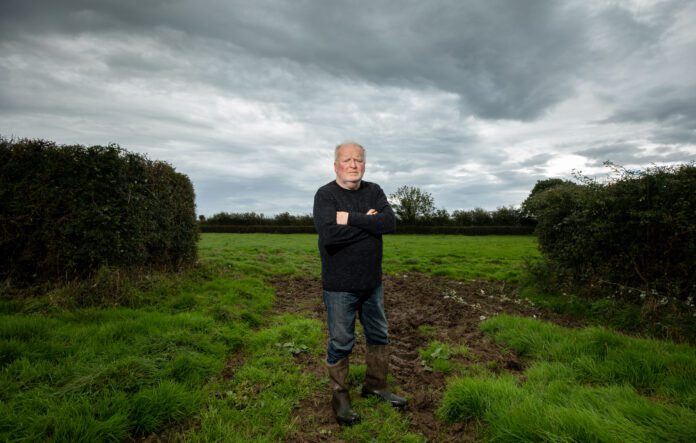
A LIMERICK farmer claims he could lose up to 20-acres of land on his family farm if planning is approved for the €1.2billion N/M20 Cork to Limerick motorway.
68-year-old dairy and grain farmer Jimmy Sheehy, from Granagh, County Limerick, runs a 173-acre farm on the proposed route for the new motorway.
A planning application for the project is programmed to be submitted to An Bord Pleanála next year, subject to approval of the project’s business case, which will be presented to government later this year.
Speaking to the Limerick Post, Jimmy said his farm is located in a highly intensive dairy area, claiming that “most people feel beaten, because once the Council have a compulsory purchase order (CPO), you really have no argument”.
Mr Sheehy, who stands to earn up to €130,000 if his land is used as part of the route, claims he was quoted a premium of €6,500 per acre under the CPO, providing he “cooperates” with local authorities throughout the process.
However, the farmer maintains he has received no guarantee that he will receive payment prior to the project’s completion, which may not be until 2035.
“I don’t want to sell the land but I am being forced to. I got this land from my father and I intend to give it to my kids intact, but now with the CPO, we have no choice but to sell,” the farmer told this newspaper.
“I can hear and see the road from where I’m talking to you in my kitchen”, Jimmy explained, “and definitely something has to be done with the road”.
This sentiment is also echoed by the Cork-Limerick Alliance Group, an organisation focused on developing better transportation links between Cork and Limerick.
They are advocating for an upgraded N24 route via Cahir, County Tipperary, rather than a direct Cork-Limerick motorway.
Alliance chairperson Brian Hyde said the group “fully support the ambition to upgrade the N20 and vastly improve the connection between Cork and Limerick cities and increase road safety”.
“However, we believe there are many shortcomings in the current M20 planning that will ultimately result in more negatives than positives for the majority of people who use the road,” the group warned.
“The government recently announced its intention to toll the road, which will make travelling on the M20 cost prohibitive for many people. This will result in commuters using back roads and the current N20, which will become the ‘old road’.
“Short and intra-urban journeys account for the vast majority of journeys taken on the N20. We have been informed there is no plan in place to improve these existing roads when the M20 is built, which means the current issues we have now around safety will remain unresolved and, in our opinion, will just get worse. That is unacceptable,” Brian added.
In a statement to this newspaper, a spokesperson for the N/M20 project at Limerick City and County Council said while the local authority is “not at liberty to discuss the individual situation regarding a specific landowner on the N/M20 Cork to Limerick Project … we are currently meeting with property owners along the project, following the publication of our project update on June 16”.
“We invite all property owners with concerns or questions to contact the project office on 061 973 730 or [email protected] and arrange a meeting with the project liaison team.’
The spokesperson said that “the project will need to obtain formal planning permission before any discussions regarding compensation are commenced”, adding that “there have been no discussions regarding specific compensation payments with landowners to date, and it will be a number of years until these discussions take place, subject to planning being granted”.
A formal process for the assessment and payment of compensation for lands will also be acquired subject to a motorway order.
“Compensation is paid once the parties have agreed the amount of compensation (or had it agreed by an arbitration process) and when the landowner has furnished proof of title for the lands in question,” the spokesperson explained.
It was also confirmed by the Council that payments are “typically finalised in advance of or during the early construction phases, depending on the specific project. However, in some cases this process can be delayed due to disagreement over compensation amount, requiring arbitration or difficulties providing proof of land ownership.”


